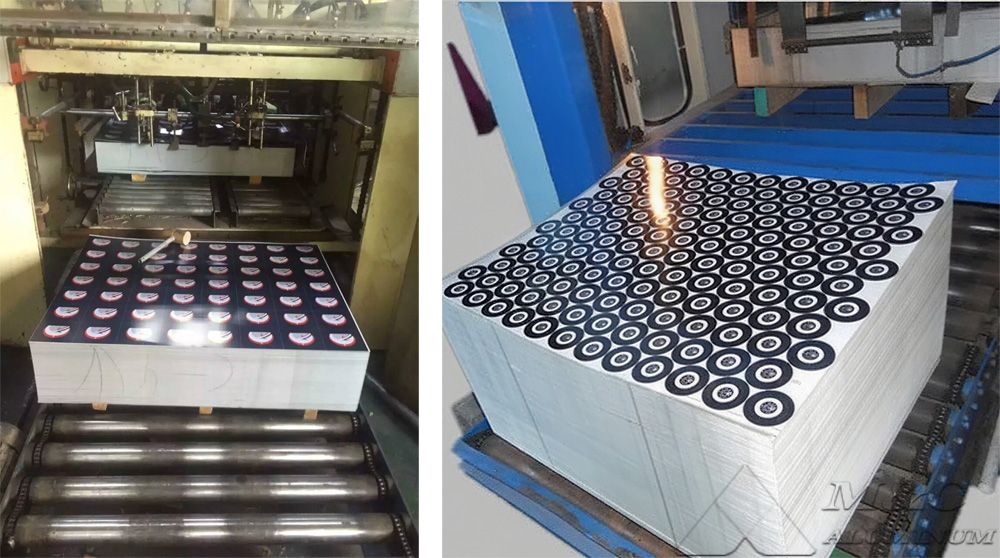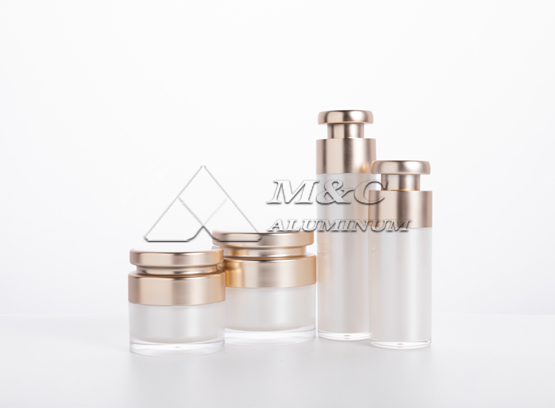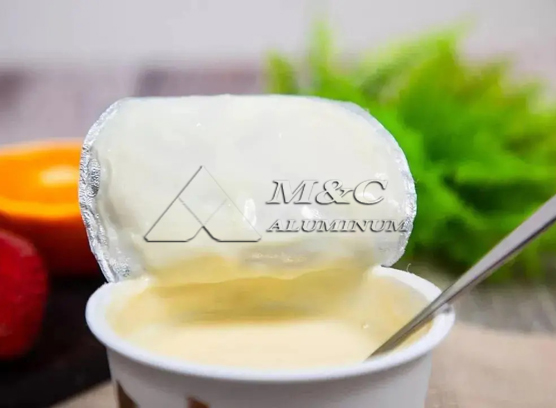- Address:Zhengzhou, Henan, China
- Mon-Fri (8am - 6pm)
- sales@alummc.com

Aluminum Alloy Strips / Sheets for Closures
The packaging industry has always been one of the major consumers of aluminum products. Its applications cover a wide range of areas, including household packaging materials, flexible packaging, food containers, bottle caps, collapsible tubes, and beverage cans.
Among these, aluminum alloy bottle caps have become an essential sealing solution for the beverage, food, pharmaceutical, and cosmetics industries, thanks to their excellent performance.
The main aluminum alloys used for closures include 8011, 1060, 3105, and 5052, commonly supplied in tempers such as H14, H16, H18, and H19, with thicknesses typically ranging from 0.2 mm to 0.3 mm. These materials offer outstanding corrosion resistance, good ductility, lightweight characteristics, recyclability, and hygienic safety.
Why Choose Aluminum Alloys for Closures?
1. Corrosion Resistance: Aluminum naturally forms a protective oxide layer, providing strong resistance against both the contents of the container and environmental factors. This is particularly critical for food and beverage products.
2. Excellent Formability: Aluminum is easy to shape using deep drawing techniques, enabling complex closure designs. It can be stamped, rolled, and embossed without cracking or tearing.
3. Lightweight: Reduces overall packaging weight, helping to cut down transportation costs.
4. Recyclable: Aluminum is highly recyclable, making it a sustainable packaging choice.
5. Printable Surface: Aluminum surfaces can be easily printed with inks and coatings, allowing for versatile branding and decorative options.
6. Barrier Properties: Effectively blocks light, oxygen, and moisture, helping preserve product freshness.
7. Tamper Evidence & Safety: Aluminum closures often feature tamper-evident rings or easy-open structures, enhancing product security.
8.Hygienic: Non-toxic and resistant to bacterial growth, aluminum is safe for direct contact with food and beverages.

Common Aluminum Alloys for Closure Applications
The choice of alloy depends on the application and required properties. Below are the most commonly used alloys:
8011 Aluminum Alloy:
The most widely used alloy for closures, known for excellent formability, good corrosion resistance, and cost efficiency. Ideal for deep drawing and embossing processes. Commonly used for ROPP (Roll-on Pilfer Proof) caps.3003 Aluminum Alloy:
Offers better strength than 8011 but with slightly reduced formability. It’s a versatile alloy with good corrosion resistance, suitable for applications that need higher strength.5052 Aluminum Alloy:
Known for outstanding corrosion resistance, especially in marine environments. It also offers good weldability and higher strength compared to 3003 and 8011. Although more expensive, it’s used in applications demanding superior corrosion protection.Other Alloys (1050, 1060):
Used for specialized applications requiring high purity. They offer excellent ductility but lower strength.
Typical Specifications of Closure Aluminum Sheets / Strips
| Alloy | 8011, 3105, 3003, 1050, 1060 |
| Thickness | 0.15 mm - 0.30 mm |
| Width | 100 mm - 1600 mm (customizable) |
| Temper | O, H14, H16, H18, H19 |
| Surface | Bright, degreased, coated, or printed |
| Samples | Available |
| Applications | ROPP aluminum caps, pharmaceutical bottle caps, cosmetic closures, beverage caps |
| Packaging | Coil or flat sheet, moisture-proof wrapping |
| MOQ | 1 - 3 tons |
Application Fields of Aluminum Closure Stock
Alcohol Packaging: ROPP caps, screw caps, long aluminum caps (e.g., 30*60 mm wine closures)
Beverage Industry: Carbonated drink caps, juice caps, energy drink caps
Pharmaceutical Industry: Blister foil, medicine bottle caps, sterile seals
Cosmetics & Personal Care: Perfume closures, lotion bottle caps, decorative closures
Food Industry: Seasoning caps, oil bottle caps, easy-open lids
Manufacturing Process of Aluminum Closures
The typical production process involves:
Slitting: Cutting wide aluminum coils into narrower strips of the required width.
Coating / Lacquering: Applying coatings or paints if needed.
Forming / Stamping / Deep Drawing: Shaping aluminum strips into closures through stamping or drawing.
Embossing (Optional): Adding logos, patterns, or decorative features.
Printing (Optional): Branding and label printing on the closure surface.
Edge Rolling / Knurling: Creating smooth or knurled edges for safety and functionality.
Threading (for Screw Caps): Rolling threads onto the closure.
Quality Control: Inspecting for defects and verifying dimensions.
Packaging: Properly packing the finished closures for transportation.
-
Advisory Message
Alloy Grade Thickness, Application, etc.
-
Quick Reply
Quick reply within 30 minutes
-
Getting Information
One-to-one design and customized production plan










